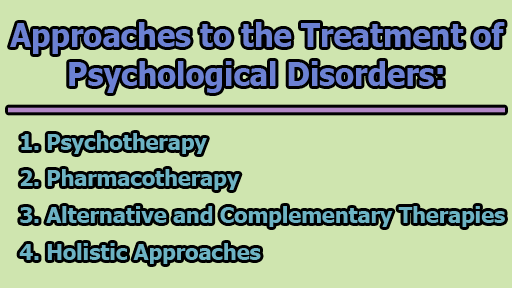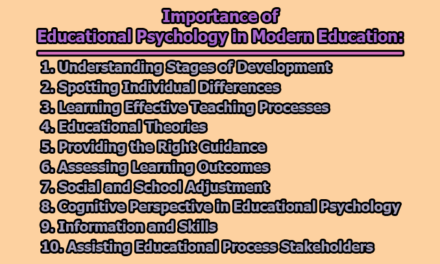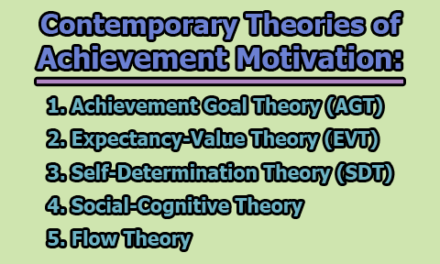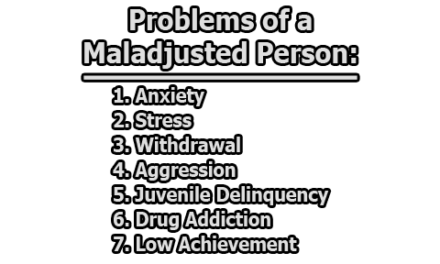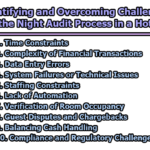Approaches to the Treatment of Psychological Disorders:
Psychological disorders are complex conditions that can significantly impact an individual’s thoughts, emotions, and behaviors. The treatment of psychological disorders requires a multifaceted approach, considering the unique needs of each individual. In this article, we will explore some of the essential approaches to the treatment of psychological disorders.
1. Psychotherapy:
1.1 Cognitive-Behavioral Therapy (CBT): Cognitive-Behavioral Therapy (CBT) stands as a cornerstone in the treatment of psychological disorders, underpinned by its evidence-based effectiveness. Developed on the premise that thoughts, feelings, and behaviors are interconnected, CBT aims to identify and modify negative thought patterns and behaviors. By fostering cognitive restructuring and behavior modification, individuals undergoing CBT gain valuable tools to manage and overcome conditions such as anxiety disorders, depression, and post-traumatic stress disorder (PTSD). The collaborative relationship between the therapist and the individual fosters self-awareness and empowers clients to develop healthier coping mechanisms.
1.2 Psychodynamic Therapy: In contrast, psychodynamic therapy traces its roots to Sigmund Freud’s psychoanalytic theories, emphasizing the unconscious mind’s role in shaping behavior and mental health. Psychodynamic therapy explores the impact of early life experiences, unresolved conflicts, and unconscious motivations on an individual’s present-day functioning. This introspective approach is particularly effective in addressing complex conditions like personality disorders, as well as interpersonal and relationship challenges. By delving into the depths of the psyche, psychodynamic therapy seeks to bring forth buried emotions and facilitate healing through increased self-awareness.
1.3 Humanistic Therapy: Humanistic therapy, epitomized by Person-Centered Therapy developed by Carl Rogers, embodies a person-centered and empathetic approach to healing. Focused on the belief in every individual’s capacity for self-actualization, humanistic therapy emphasizes creating a supportive and non-judgmental therapeutic environment. Through active listening, empathy, and unconditional positive regard, therapists facilitate clients’ exploration of their feelings and experiences, fostering personal growth and self-discovery. This approach is particularly beneficial for those seeking to navigate life transitions, enhance self-esteem, and cultivate a deeper understanding of their authentic selves.
1.4 Dialectical Behavior Therapy (DBT): Dialectical Behavior Therapy (DBT), initially developed for individuals with borderline personality disorder, integrates cognitive-behavioral techniques with mindfulness and acceptance strategies. The dialectical approach encourages a balance between acceptance of one’s current state and the pursuit of positive change. DBT incorporates skills training in mindfulness, distress tolerance, emotion regulation, and interpersonal effectiveness, making it effective in treating conditions such as eating disorders and substance abuse. By promoting self-acceptance and equipping individuals with practical skills, DBT contributes to a more balanced and fulfilling life.
2. Pharmacotherapy:
2.1 Antidepressant Medications: Antidepressant medications represent a key component of pharmacotherapy for psychological disorders, specifically those related to mood disturbances. Selective serotonin reuptake inhibitors (SSRIs) and serotonin-norepinephrine reuptake inhibitors (SNRIs) are commonly prescribed classes of antidepressants. These medications work by increasing the levels of neurotransmitters, such as serotonin and norepinephrine, in the brain, helping to alleviate symptoms associated with depression and certain anxiety disorders.
SSRIs, such as fluoxetine and sertraline, are widely prescribed due to their efficacy and relatively favorable side effect profiles. They are particularly effective in managing symptoms of major depressive disorder, obsessive-compulsive disorder (OCD), and panic disorder. SNRIs, such as venlafaxine and duloxetine, target both serotonin and norepinephrine, making them suitable for conditions like generalized anxiety disorder and fibromyalgia.
While these medications are generally well-tolerated, potential side effects, such as nausea, insomnia, and sexual dysfunction, need to be carefully considered. Additionally, the response to antidepressants varies among individuals, necessitating close monitoring and potential adjustments in medication type or dosage.
2.2 Anxiolytic Medications: Anxiolytic medications are prescribed to alleviate symptoms of anxiety disorders, providing relief from excessive worry, restlessness, and muscle tension. Benzodiazepines, such as alprazolam and lorazepam, are a common class of anxiolytic medications that act on the central nervous system to enhance the effects of the neurotransmitter gamma-aminobutyric acid (GABA). While effective in the short term, benzodiazepines carry the risk of dependence and withdrawal symptoms, making them less suitable for long-term use.
Buspirone, a non-benzodiazepine anxiolytic, is an alternative medication that works on serotonin receptors. It is considered less habit-forming than benzodiazepines and is often prescribed for generalized anxiety disorder. However, its onset of action may be slower compared to benzodiazepines.
2.3 Antipsychotic Medications: Antipsychotic medications play a crucial role in the treatment of psychotic disorders, such as schizophrenia, by modulating dopamine levels in the brain. Additionally, they are prescribed for conditions characterized by severe mood disturbances, such as bipolar disorder and major depressive disorder with psychotic features.
Typical antipsychotics, such as haloperidol and chlorpromazine, primarily block dopamine receptors, while atypical antipsychotics, such as olanzapine and quetiapine, also affect serotonin receptors. The choice of antipsychotic medication depends on the specific symptoms and tolerability for each individual. Monitoring for potential side effects, including weight gain, metabolic changes, and extrapyramidal symptoms, is essential during antipsychotic treatment.
2.4 Mood Stabilizers: Mood stabilizers are a class of medications commonly used to manage bipolar disorder, characterized by episodes of mania and depression. Lithium, a naturally occurring element, remains a cornerstone in mood stabilization. It modulates neurotransmitter activity and influences cellular processes, reducing the severity and frequency of mood swings.
In addition to lithium, certain anticonvulsant medications, such as valproic acid and lamotrigine, are prescribed as mood stabilizers. These medications work by regulating neuronal activity and stabilizing mood fluctuations. Close monitoring of blood levels is necessary for lithium to ensure therapeutic efficacy and prevent potential toxicity. Additionally, healthcare providers carefully assess the risks and benefits of each medication, taking into account individual factors such as comorbid conditions and potential interactions with other medications.
3. Alternative and Complementary Therapies:
3.1 Mindfulness-Based Therapies: Mindfulness-based therapies have gained prominence as effective interventions for psychological disorders, promoting awareness and acceptance of one’s thoughts and emotions. Mindfulness-Based Stress Reduction (MBSR) and Mindfulness-Based Cognitive Therapy (MBCT) are two well-established approaches that incorporate mindfulness principles.
MBSR, pioneered by Dr. Jon Kabat-Zinn, involves structured mindfulness meditation practices, mindful movement (such as yoga), and group discussions. This holistic approach aims to cultivate non-judgmental awareness of the present moment, reducing stress and enhancing overall well-being. MBSR has demonstrated efficacy in reducing symptoms of anxiety, depression, and chronic pain.
MBCT, developed to prevent the recurrence of depressive episodes, combines cognitive therapy with mindfulness practices. Individuals with a history of depression learn to recognize and interrupt automatic patterns of negative thinking, reducing the risk of relapse. MBCT has shown effectiveness in preventing recurrent depressive episodes and is recommended as a maintenance treatment for individuals with a history of depression.
3.2 Yoga and Exercise: Physical activity, including yoga and regular exercise, has emerged as a valuable adjunct to traditional treatment approaches for psychological disorders. Exercise has been shown to have a positive impact on mood by releasing endorphins, the body’s natural mood lifters. Additionally, regular physical activity helps reduce levels of stress hormones and promotes better sleep, contributing to overall mental well-being.
Yoga, with its emphasis on controlled breathing, mindfulness, and gentle physical postures, offers both physical and mental benefits. Numerous studies suggest that yoga can be effective in reducing symptoms of anxiety, depression, and post-traumatic stress disorder. The mind-body connection fostered by yoga provides individuals with a holistic approach to managing psychological symptoms.
3.3 Art and Music Therapy: Art and music therapy offer creative outlets for individuals to express emotions, explore their inner worlds, and develop coping strategies. These therapeutic modalities are particularly valuable for individuals who may struggle to articulate their feelings verbally. Art therapy may involve drawing, painting, or sculpting, while music therapy incorporates the use of music and sound to facilitate emotional expression.
Art therapy can be particularly effective in addressing trauma, as the creative process allows individuals to externalize and process painful experiences. Music therapy, on the other hand, can aid in emotional regulation and stress reduction. Both modalities provide individuals with alternative means of communication and self-expression, contributing to their overall mental health.
3.4 Herbal and Nutritional Supplements: While not a substitute for evidence-based treatments, some individuals explore herbal and nutritional supplements as complementary approaches to managing psychological symptoms. St. John’s Wort, an herbal supplement, has been studied for its potential effectiveness in treating mild to moderate depression. However, caution is advised as it may interact with other medications and have side effects.
Omega-3 fatty acids, found in fish oil and certain nuts and seeds, have been investigated for their potential benefits in supporting mental health. Some studies suggest that omega-3 supplementation may have a positive impact on mood disorders, although more research is needed to establish conclusive evidence.
4. Holistic Approaches:
4.1 Integrative Mental Health Care: Integrative mental health care represents a holistic and collaborative approach that combines conventional treatments with complementary and alternative therapies. This approach acknowledges the interconnectedness of physical, emotional, and spiritual well-being, recognizing that each individual’s path to mental health is unique.
In integrative mental health care, healthcare providers work with individuals to create personalized treatment plans that may include a combination of psychotherapy, pharmacotherapy, and alternative therapies such as acupuncture, biofeedback, or massage therapy. The integration of these diverse modalities aims to address the whole person, considering not only symptoms but also underlying contributing factors.
The collaboration between conventional and alternative healthcare practitioners ensures that individuals receive comprehensive and individualized care. It allows for flexibility in treatment approaches, considering the preferences and values of the individual, promoting a sense of empowerment and active participation in the healing process.
4.2 Holistic Lifestyle Changes: Holistic lifestyle changes encompass a broad spectrum of factors that can significantly impact mental health. These changes extend beyond specific interventions and therapies, emphasizing the importance of overall well-being. Key components of holistic lifestyle changes include:
- Nutrition: A balanced and nutritious diet plays a crucial role in mental health. Certain nutrients, such as omega-3 fatty acids, B vitamins, and antioxidants, have been linked to improved mood and cognitive function. Conversely, a diet high in processed foods and sugar may contribute to inflammation, affecting mental well-being.
- Sleep: Adequate and quality sleep is essential for mental health. Sleep disturbances are common in many psychological disorders, and addressing sleep hygiene practices can positively impact mood, cognition, and overall functioning.
- Exercise: Regular physical activity not only benefits physical health but also has a profound impact on mental well-being. Exercise releases endorphins, reduces stress hormones, and improves sleep, making it a valuable component of holistic mental health care.
- Stress Management: Chronic stress can contribute to the development and exacerbation of psychological disorders. Stress management techniques, such as mindfulness, relaxation exercises, and time management, are essential for promoting mental resilience.
- Mind-Body Practices: Incorporating mind-body practices, such as meditation, tai chi, or qigong, can contribute to stress reduction and overall emotional well-being. These practices emphasize the connection between mental and physical health, promoting harmony and balance.
By addressing these lifestyle factors collectively, individuals can create a foundation for better mental health. Holistic lifestyle changes empower individuals to take an active role in their well-being, providing a comprehensive approach that complements other therapeutic interventions.
4.3 Supportive Communities and Social Networks: Social support is a fundamental aspect of mental health. Engaging in supportive communities and maintaining strong social networks can contribute significantly to the well-being of individuals with psychological disorders. Supportive communities may include:
- Group Therapy: Participating in group therapy provides individuals with a sense of belonging and shared understanding. Group settings allow individuals to connect with others facing similar challenges, fostering mutual support and empathy.
- Support Groups: Support groups, whether in-person or online, offer individuals a platform to share their experiences, receive encouragement, and exchange coping strategies. Support groups are available for various psychological disorders, helping individuals feel less isolated.
- Family and Friends: The support of family and friends is invaluable in the journey toward mental health. Open communication and understanding from loved ones create a supportive environment, contributing to an individual’s overall stability.
- Online Communities: In the digital age, online communities and forums provide a space for individuals to connect, share experiences, and access information. While online support cannot replace face-to-face interactions, it can serve as a valuable supplement, especially for those who may face geographical or logistical challenges.
In conclusion, the treatment of psychological disorders involves a mosaic of therapeutic modalities, acknowledging the intricate interplay of biological, psychological, and social factors. By embracing a holistic and individualized approach, mental health professionals, individuals, and their support networks can work collaboratively toward the goal of fostering lasting mental well-being and resilience.

Former Student at Rajshahi University

